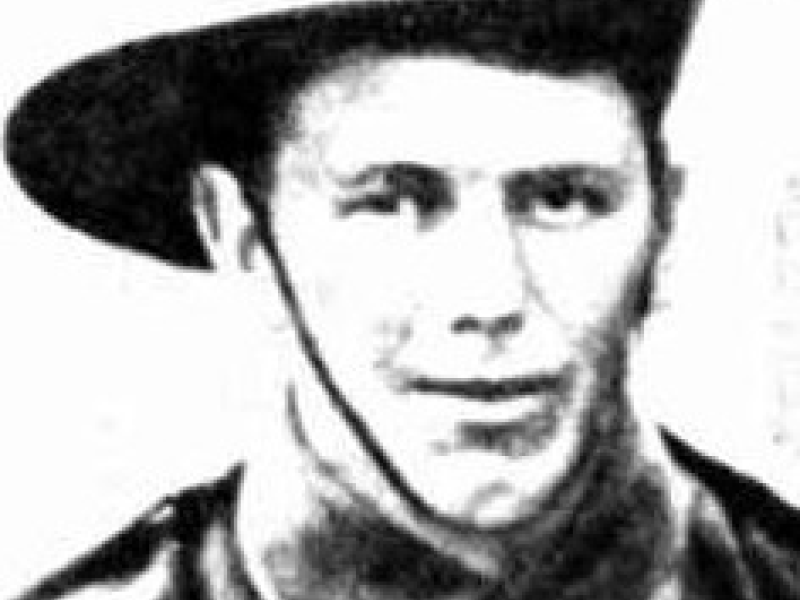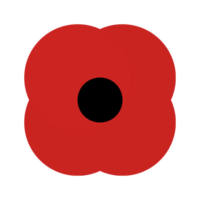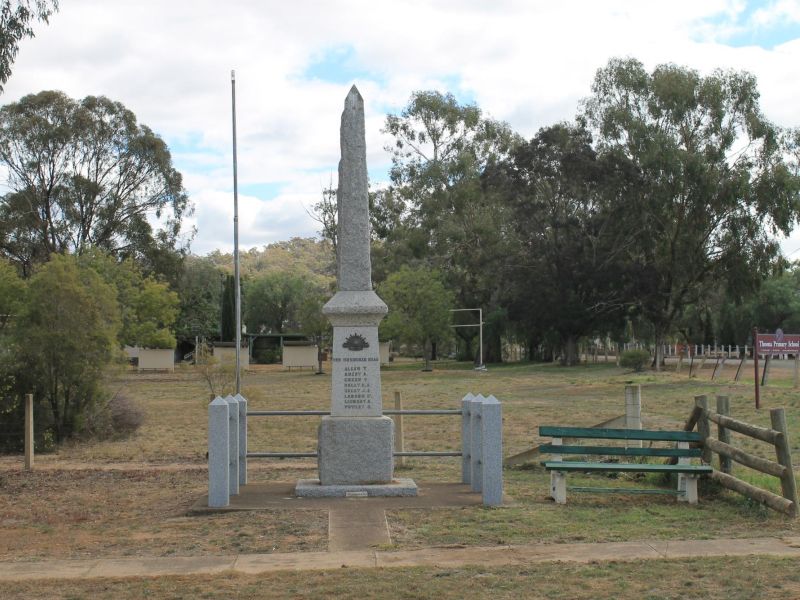Private Charles Powley, 7th Battalion, AIF
Charles Powley was born in 1894, one of ten children of Edward and Arabella Powley of Boweya, near Glenrowan in northern Victoria.
Known affectionately as “Charlie” by his family and friends, he attended Wangaratta High School where he was involved in senior cadets. On the eve of the First World War, he was working as a blacksmith at T. Mason Coach and Wagon Builders in Wangaratta.
Charlie enlisted in the Australian Imperial Force with his older brother, Jack, in Wangaratta just days after Australia went to war in August 1914. They were 20 and 21 years of age respectively.
The pair spent several weeks training at Broadmeadows Camp on the outskirts of Melbourne, after which they embarked for the fighting in Europe with the first Australian troopship convoy in November 1914.
The convoy was later diverted to Egypt to protect British interests in the area following Turkey’s entry into the war.
The 7th Battalion spent the following months training at Mena Camp near Cairo. The monotony of life in the desert changed in April 1915 when the Australian and New Zealand troops received orders to prepare for an amphibious landing on the Gallipoli peninsula. Their effort would be part of a much broader allied attempt to breach the Dardanelles by naval force, shell Constantinople, and force Turkey out of the war.
On 25 April 1915, troops of the 7th Battalion landed at what later became known as Anzac Cove, forming part of the second wave attack that came ashore in the area called Fisherman’s Hut. While most Australian troops had come ashore unopposed, a Turkish platoon occupying a knoll behind Fisherman’s Hut poured devastating and accurate rifle fire into the 7th Battalion as they rowed ashore.
Of the 120 men in the first four boatloads, just 40 evaded death and wounding.
Charlie Powley was shot as soon he landed at Anzac Cove.
Jack Powley later wrote home from a hospital in Egypt to say: “He was shot close to me on the beach when we were landing. No words can tell how heart-broken I am … It is a hard task to tell of his death but he had no pain at all. I knelt down beside him and said ‘good-bye’, but he did not answer.”
This letter reached the Powley family in Boweya several weeks before his parents were notified through official channels.
Charles Powley was buried at No. 2 Outpost Cemetery near Fisherman’s Hut on Gallipoli.
His grieving family inserted the following epitaph in the local newspaper several weeks after his death:
We loved him in life, he is dear to us still
In grief we must bend to God’s holy will;
Our sorrow is great our loss hard to bear,
But the angels will tend our dear Charlie with care.
His brother Jack survived Gallipoli and returned to Australia on 31 October 1915.
Aaron Pegram, Historian, Military History Section

 Australian War Memorial
Australian War Memorial